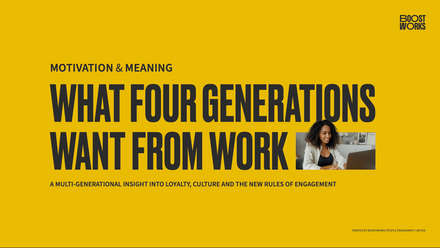Three principles for fairness in reward during COVID-19

This is worrying because feelings of unfairness negatively impact those all important aspects of trust and engagement, which will be crucial in the coming months. The managers we talk to describe how they face daily questions about how they acknowledge caring responsibilities, and how they measure productivity for those home working compared to those in offices.
These issues are clearly crucial for reward professionals. Research on the foundation of fairness points to three elements. First, that the outcome is perceived as fair (e.g. are employees getting the right recognition relative to their performance?). Next, that the procedure which employees engaged in was fair (e.g. the way in which the new performance and reward system was arrived at) and third, that in their interactions with managers on issues such as performance and reward, employees feel they are treated in a fair and just manner.
It is imperative that you start now to ensure that the inevitable transformations that COVID-19 will bring are seen and experienced as fair. Here are three actions that could make all the difference:
1. Engage employees directly in a conversation about the choices and trade-offs they face
What is abundantly clear is that the deal between employer and employee is shifting. The looming recession means that budgets will be cut, yet at the same time employees are able to work more flexibly and potentially have more autonomy about when and how they work. The result is that whilst some rewards structures such as bonuses may no longer be in place, the upside is that people are more able to manage their own time. Talking about the balance of this new deal in a frank and open way will create a stronger feeling that the process is fair.
2. Be transparent about how and why decisions are made
Oftentimes businesses fall into the trap of communicating the result of management decisions without sharing important details of the process by which that decision was made. At this time, when fairness is top of the agenda, it is crucial to share not only the decisions made but also how they were arrived at. Specifically, the insights and evidence on which the decision case was built and how leaders went about selecting the options.
One effective way of doing this is to ensure that you craft new policies and practices with rather than for employees. That was the approach that the leadership team at the UK insurer Brit took when they partnered with our advisory firm HSM. They wanted to rethink some of the basics of the human resource policies and ensure they were fit for the future. So rather than do this for employees, they did it with them by upskilling 10% of the total employee population in the trends that would shape work.
This meant that together they could create a blueprint for their future ways of working and, by doing so, be much clearer about how decisions were made.
3. Provide managers with the tools and training to help them support their colleagues virtually
The third element – that the interactions with managers are perceived as fair is under real threat right now. Many managers are under constant pressure to perform and communicate. Yet our research shows that managers who over-communicate, show empathy, and project warmth are particularly effective when managing remote teams.
Together these three actions will support your organisation as you reframe your reward and recognition practices and processes in light of the new ways of working. By grounding them in principles of fairness, you will help people become more engaged with their work, more likely to cooperate with others, and ultimately, more likely to stay with the firm. Looking forward – these are all benefits that will be crucial to navigating the months ahead.
The authors are Professor Lynda Gratton, founder of Hot Spots Movement (HSM) and Harriet Molyneux, MD at HSM.






